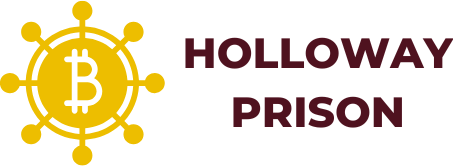In a world that seems to upgrade itself faster than a teenager’s smartphone, keeping up with tech trends can feel like a full-time job. From AI that can write poetry to gadgets that brew coffee while you sleep, the landscape of technology is constantly evolving. It’s like a high-speed roller coaster—thrilling, a bit dizzying, and definitely not for the faint of heart.
Table of Contents
ToggleOverview of Tech Trends Insights
Technology evolves rapidly, influencing various aspects of daily life. Artificial intelligence reshapes industries, with capabilities ranging from writing poetry to automating complex tasks. Innovations in gadgets consistently enhance convenience, catering to consumer needs.
Emerging trends often focus on the integration of smart devices. The Internet of Things (IoT) continues to connect everyday objects, improving efficiency in personal and professional environments. Currently, home automation systems enable remote management of lighting, security, and appliances.
Data analytics remains a crucial component across sectors. Companies prioritize data-driven decision-making, enhancing performance through insights gathered from user behavior. Compliance with data privacy regulations becomes increasingly vital, shaping how organizations manage customer information.
Cloud computing transforms the way businesses operate. Flexibility and scalability of cloud services allow organizations to adapt quickly to market changes. Remote work capabilities facilitate collaboration among teams, irrespective of geographical constraints.
Digital currencies gain traction in financial markets. As blockchain technology advances, cryptocurrencies become more mainstream, offering alternatives to traditional banking systems. Financial institutions explore applications that promote security and transparency in transactions.
Virtual and augmented reality are also making waves. These technologies create immersive experiences in gaming, education, and training environments. Businesses leverage these tools for marketing campaigns and product demonstrations, captivating potential customers.
Staying updated on tech trends offers advantages to individuals and organizations. Awareness of advancements informs better purchasing decisions, enhancing overall productivity and satisfaction. Embracing innovation contributes to future growth and success in an increasingly digital landscape.
Emerging Technologies

Rapid advancements in technology continually reshape the landscape of various industries. Emerging technologies lead to innovative solutions that enhance efficiency and effectiveness.
Artificial Intelligence and Machine Learning
Artificial Intelligence (AI) has become a cornerstone of innovation, powering applications across many sectors. Retail companies utilize AI-driven algorithms to personalize shopping experiences, while healthcare providers employ machine learning to predict patient outcomes. Companies have integrated natural language processing in customer service systems, enabling automated responses. Financial institutions leverage AI for fraud detection and risk assessment, improving security measures. These applications signify the profound impact AI and machine learning have on operational efficiency and customer engagement.
Blockchain Innovations
Blockchain technology transcends cryptocurrency, offering solutions in numerous fields. Supply chain management benefits from blockchain by enhancing transparency and traceability, leading to reduced fraud. Healthcare sectors utilize blockchain for secure patient data management, ensuring privacy and compliance with regulations. Real estate transactions achieve faster processing times through blockchain’s decentralized nature, minimizing administrative costs. These innovations highlight blockchain’s potential to streamline operations and instill trust across various industries.
Impact on Industries
Technology significantly influences various industries, driving efficiency and innovation.
Healthcare Technology Advancements
Healthcare experiences rapid transformation through technology. Telemedicine allows remote consultations, eliminating geographical barriers. Electronic health records streamline patient data management, enhancing accessibility. Wearable devices monitor vital signs continuously, fostering proactive health management. AI algorithms analyze medical images, improving diagnostic accuracy. Innovations in robotic surgery enable precision and reduced recovery times. Patients benefit from personalized treatment plans powered by data analytics. Increasingly, technology plays a crucial role in optimizing healthcare delivery and improving outcomes.
Financial Services Transformation
Financial services undergo comprehensive changes due to technology. Digital banking solutions enhance convenience, offering 24/7 access to account management. Blockchain technology promotes secure transactions, increasing transparency and trust. Automated trading systems analyze market trends, enabling quicker decision-making. Mobile payment platforms simplify transactions for consumers and businesses. AI-driven chatbots improve customer support efficiency, addressing inquiries in real-time. Emerging fintech startups disrupt traditional banking models, encouraging competition and innovation. As a result, customers enjoy greater choice and improved financial services overall.
Consumer Behavior Changes
Technology reshapes consumer behavior, primarily driven by advancements in smart devices and the shift to remote work.
Rise of Smart Devices
Smart devices become integral in daily life, enhancing convenience and connectivity. Consumers increasingly rely on smartphones, smart speakers, and wearables to manage tasks seamlessly. Research indicates that the global smart home market is expected to reach $174 billion by 2025. Users prefer interconnected gadgets that facilitate automation and provide real-time data. Increased usage of smart home assistants also shows a desire for hands-free control. This trend signifies an ongoing movement toward greater reliance on technology in everyday routines.
The Shift to Remote Work
Remote work fundamentally alters consumer interactions with products and services. More companies adopt flexible work policies, increasing demand for home office equipment and digital solutions. Statistically, 30% of the U.S. workforce now engages in remote work. This shift influences consumer preferences for online shopping, subscription services, and digital communication tools. Virtual collaboration platforms gain popularity, providing avenues for effective teamwork. Flexibility and accessibility become key considerations in purchasing decisions among remote workers.
Future Predictions
Tech trends continue to evolve rapidly, setting the stage for significant shifts in industries and consumer behavior. Observing upcoming changes can provide valuable insights.
Long-term Trends to Watch
Artificial Intelligence stands as a key player, driving advancements across various sectors. The focus shifts toward ethical AI development to address societal concerns. Additionally, the Internet of Things is expected to expand, integrating further into daily life, with the global smart home market predicted to exceed $174 billion by 2025. Remote work trends are set to persist, leading to increased reliance on digital collaboration tools. Finally, sustainability will gain prominence as consumers prioritize eco-friendly technologies, influencing future product development.
Potential Challenges Ahead
Privacy concerns represent a significant challenge as technology expands. Increased data collection from smart devices raises questions about user security. Regulatory compliance will demand attention, especially in financial services and healthcare sectors. Cybersecurity threats are poised to grow, necessitating robust protection strategies. Market saturation poses another challenge, as numerous products vie for consumer attention, complicating choices. As these issues arise, stakeholders must navigate complexities to foster trust and enhance user experiences in an increasingly digital world.
The landscape of technology continues to evolve at an unprecedented pace. Staying informed about these trends is crucial for individuals and businesses alike. Embracing advancements in AI, IoT, and blockchain will not only enhance operational efficiency but also improve consumer experiences.
As technology reshapes industries and daily life, the importance of ethical considerations and data privacy cannot be overstated. Navigating this digital landscape requires adaptability and foresight. By understanding emerging trends and their implications, stakeholders can position themselves for success in an ever-changing environment. The future promises exciting possibilities, but it also demands a proactive approach to address potential challenges.





